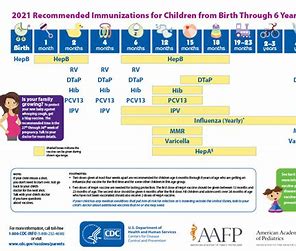
ADDITIONAL As the new school year approaches, parents face the crucial task of ensuring their children are up-to-date with their immunizations. Vaccines are a cornerstone of public health, protecting not just individual children but the broader community from preventable diseases. Here’s a comprehensive guide for parents on what to know about back-to-school immunizations this year.
Table of Contents
Why Vaccinations Are Important
Vaccines are essential for preventing serious and potentially life-threatening diseases. They work by stimulating the immune system to recognize and fight specific pathogens without causing the disease itself. This collective immunity helps prevent outbreaks and protects those who cannot be vaccinated, such as infants and individuals with certain medical conditions.
Updated Immunization Schedules
ADDITIONAL The Centers for Disease Control and Prevention (CDC) and other health organizations periodically update vaccination schedules based on new research and emerging public health trends. For the 2024 school year, there are several important updates:
- COVID-19 Vaccines: The CDC has recommended updated COVID-19 booster shots for the 2024-2025 school year. These boosters are tailored to protect against the most recent strains of the virus and are particularly important for children who are 6 months and older. Parents should check with their child’s healthcare provider about eligibility and timing.
- Routine Vaccinations:
- DTaP (Diphtheria, Tetanus, and Pertussis): Children typically receive five doses by age 6. The Tdap booster is required around age 11-12.
- MMR (Measles, Mumps, and Rubella): Two doses are recommended for children, generally given between 12-15 months and again at 4-6 years.
- Polio: Four doses are recommended, with the last dose usually given between 4-6 years.
- Hepatitis B: Three doses are typically administered, starting at birth.
- Varicella (Chickenpox): Two doses are recommended, generally given between 12-15 months and 4-6 years.
- HPV (Human Papillomavirus): The HPV vaccine is recommended for preteens aged 11-12 but can be given starting at 9 years old. It protects against cancers caused by human papillomavirus and is most effective when given before the onset of sexual activity.
- Meningococcal Vaccines: The first dose is given around age 11-12, with a booster recommended at age 16. This vaccine protects against meningitis and certain types of bloodstream infections.
New Recommendations
ADDITIONAL This year, several new vaccine recommendations and changes may affect school-aged children:
- Flu Vaccines: Annual flu vaccines are strongly recommended for all children aged 6 months and older. Flu seasons can vary in severity, and vaccination is the best way to protect against the most common strains.
- COVID-19 Updates: New vaccines and boosters are continually developed as the virus evolves. Parents should stay informed about the latest recommendations from health authorities and consult with healthcare providers about the most recent vaccines available for their children.
State and School Requirements
ADDITIONAL Different states and school districts have varying requirements for school entry. It’s important for parents to:
- Review Local Requirements: Check with your child’s school or local health department to understand specific vaccination requirements and deadlines. Some states may have additional vaccine requirements or exemptions based on personal or religious beliefs.
- Maintain Immunization Records: Schools often require proof of vaccination for enrollment. Ensure that your child’s immunization records are up-to-date and readily available.
- Consider Additional Vaccines: Some schools and states may require vaccines for diseases not commonly covered in routine schedules. For example, certain states may have specific requirements for vaccines like the COVID-19 vaccine or additional meningococcal vaccines.
Addressing Vaccine Hesitancy
ADDITIONAL Vaccine hesitancy remains a challenge for some parents. It’s crucial to address concerns with factual information and open dialogue:
- Educate Yourself: Use reputable sources such as the CDC, the World Health Organization (WHO), and your child’s healthcare provider to get accurate information about vaccines.
- Consult Healthcare Providers: Discuss any concerns with your child’s pediatrician. They can provide personalized advice and answer questions about the safety and efficacy of vaccines.
- Understand the Benefits: Vaccines not only protect your child but also contribute to community immunity, reducing the risk of outbreaks and protecting vulnerable populations.
How to Prepare for Vaccination
ADDITIONAL Preparation can make the vaccination process smoother for both children and parents:

- Schedule Appointments Early: Ensure vaccinations are administered well before school starts to avoid last-minute issues. Many healthcare providers allow ADDITIONAL online appointment scheduling for convenience.
- Discuss with Your Child: Prepare your child for their vaccinations by explaining what to expect in an age-appropriate way. Reassure them that the process is quick and will help keep them healthy.
- Manage Post-Vaccine Care: Some children may experience mild side effects, such as soreness at the injection site or a low-grade fever. Keep your child comfortable and monitor them for any adverse reactions. Most side effects are temporary and resolve on their own.
Vaccination and Public Health
Vaccinations are a public health responsibility. By keeping your child’s immunizations current, you contribute to the broader effort of disease prevention and control. As new vaccines and recommendations continue to evolve, staying informed and proactive ensures ADDITIONAL that your child and the community remain protected against preventable diseases.
In summary, back-to-school immunizations are a critical aspect of preparing for the school year. By understanding current vaccine recommendations, addressing any concerns, and ensuring compliance with local requirements, parents can help protect their children and support public health.







